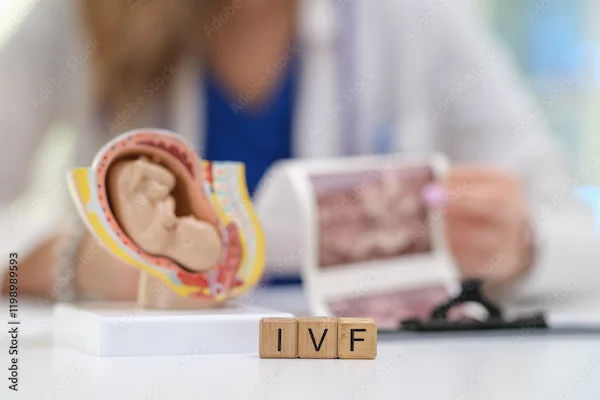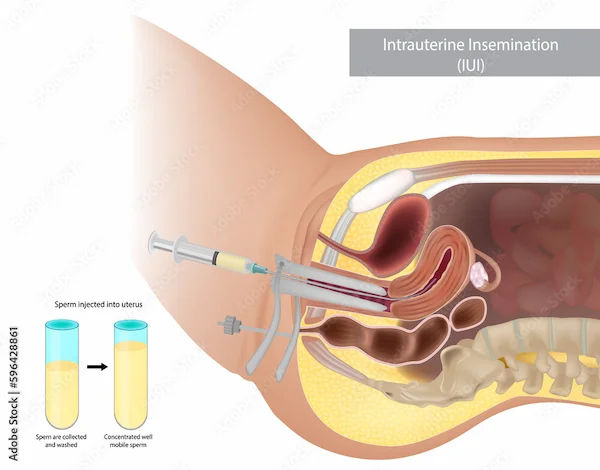Bleeding During Pregnancy: Causes, Risks, and When to Seek Help
Understand the causes and risks of bleeding during pregnancy, including when to seek help and what steps to take for a safe pregnancy. Learn more about common and rare reasons for bleeding.

Written by Dr. Sonia Bhatt
Last updated on 3rd Jul, 2025

Introduction
Bleeding during pregnancy is a common concern for expectant mothers. It can be alarming, especially if you’re unsure what’s causing it or whether it’s a sign of something serious. However, it’s important to understand that bleeding during pregnancy can be caused due to various reasons, some of which are harmless, while others may require medical attention.
Understanding Bleeding During Pregnancy
Bleeding or spotting during pregnancy refers to any discharge of blood from the vagina. It can range from light spotting (very small amounts of blood) to heavier bleeding (similar to a menstrual period or more). It can happen at any stage of pregnancy and for various reasons. Here’s a breakdown of how common it is and why it may occur:
Early Pregnancy: Bleeding in the early stages of pregnancy (the first trimester) is more common than many realise, with up to 1 in 4 women experiencing some bleeding or spotting. However, the reasons behind the bleeding can vary significantly.
Later Stages of Pregnancy: Bleeding during the second and third trimesters is less common but can occur. When bleeding happens later in pregnancy, it may indicate more serious conditions.
Understanding the possible causes of bleeding and knowing what to do can help you remain calm and ensure the best outcomes for you and your baby.
Common Causes of Bleeding in Pregnancy
Bleeding during pregnancy can be a worrying symptom, but it's important to understand that not all cases are serious. Many causes of bleeding are common and may not indicate a major problem. Here are some of the most common reasons for bleeding during pregnancy:
1. Implantation Bleeding (Early Pregnancy)
Implantation bleeding can occur when a fertilised egg attaches to the uterine lining, which can cause light spotting. This typically happens around 6-12 days after conception. Implantation bleeding is usually very light and doesn’t last long. It’s often mistaken for an early period, but it is typically much lighter in flow and duration.
When to seek help: If the bleeding is light and stops quickly, it’s normally not a concern. But, if the bleeding is heavy or persists, it’s essential to reach your doctor.
2. Miscarriage (Early Pregnancy)
Miscarriage is one of the leading reasons of bleeding in early pregnancy. Around 1 in 10 recognised pregnancies end in miscarriage. Bleeding is often one of the first signs of miscarriage. In many cases, the bleeding is accompanied by cramping or pain, and the flow is heavier than spotting.
When to seek help: If you experience bleeding with cramps or if the bleeding becomes heavy (similar to a menstrual period or more), contact your healthcare provider immediately. A miscarriage can’t always be prevented, but early care can help manage any complications.
3. Ectopic Pregnancy
An ectopic pregnancy occurs when the fertilised egg implants outside the uterus, often in one of the fallopian tubes. This type of pregnancy is not viable and can cause serious complications if left untreated. Symptoms may include light bleeding, pain in the abdomen, and discomfort or pain in the shoulder. Ectopic pregnancy can be life-threatening if the fallopian tube ruptures.
When to seek help: If you experience any unusual abdominal pain and bleeding during early pregnancy, it’s essential to seek medical help immediately to rule out ectopic pregnancy. Timely diagnosis is essential for protecting your health.
4. Subchorionic Haematoma
A subchorionic haematoma is a collection of blood between the uterine wall and the placenta. It is one of the most common causes of bleeding during early pregnancy and often causes light bleeding or spotting. Most cases resolve on their own without any issues, and the pregnancy can continue without complications. Some cases can increase the risk of preterm labour or miscarriage, depending on size and location.
When to seek help: If the bleeding is light and stops, it’s usually not a cause for concern. However, you should always inform your healthcare provider about any bleeding during pregnancy. If the bleeding becomes heavy or is accompanied by pain, prompt medical evaluation is recommended.
5. Cervical Changes
During pregnancy, hormonal changes increase blood flow to the cervix, making it more sensitive and prone to bleeding. Simple activities like intercourse, a pelvic exam, or even a bowel movement can trigger light bleeding or spotting. This is known as "cervical bleeding."
When to seek help: If the bleeding is light and stops quickly, it's typically harmless. However, if bleeding persists or occurs frequently, speak with your healthcare provider.
Less Common Causes of Bleeding During Pregnancy
While less frequent, certain conditions in pregnancy can cause bleeding that requires attention. These are typically more serious and may pose risks to both the mother and the baby. If you experience any of these symptoms, it's crucial to seek medical help promptly. Here are some less common causes of bleeding during pregnancy:
1. Placental Problems (Later Pregnancy)
As you progress into the second or third trimester, bleeding can sometimes be linked to issues with the placenta, which provides nourishment to your baby. Conditions such as placenta previa (where the placenta covers the cervix) or placental abruption (where the placenta detaches from the uterus) can cause significant bleeding.
When to seek help: If you have heavy bleeding or any abdominal pain, it is necessary to see your doctor. Placental issues can endanger both the mother and the baby, so prompt intervention is essential.
2. Preterm Labour (Later Pregnancy)
Bleeding can also be a sign of preterm labour, which occurs when the body begins preparing for labour too early. Along with bleeding, other symptoms of preterm labour include regular contractions, low back pain, and pelvic pressure.
When to seek help: If you are experiencing contractions or bleeding before 37 weeks of pregnancy, you should contact your doctor immediately to assess the situation and prevent preterm birth.
3. Infections or Cervical Inflammation
Infections of the cervix or vagina can sometimes lead to bleeding. This could be due to sexually transmitted infections, bacterial infections, or other inflammatory conditions. These infections are usually treatable but should not be ignored.
When to seek help: If you notice abnormal discharge, itching, pain, or unusual bleeding, speak with your healthcare provider to rule out infections or treat them early.
What to Do If You Experience Bleeding During Pregnancy
If you experience bleeding during pregnancy, it’s essential to stay calm and take the following steps:
Monitor the Bleeding: Keep track of how much blood you are losing and whether you have any additional symptoms like cramping, dizziness, or abdominal pain.
Rest: While you shouldn’t jump to any conclusions, it's wise to take it easy. If you experience light spotting, try to rest and avoid strenuous activities.
Seek Medical Advice: Even if the bleeding seems light, it’s always a good idea to inform your doctor. They may ask you to come in for a check-up, perform an ultrasound, or carry out blood tests to ensure everything is fine.
Follow Medical Guidance: If your doctor prescribes treatment or advice, follow their instructions carefully. This might include pelvic rest, prescribed medications, or more frequent check-ups.
When Should You Call Your Doctor?
While light spotting may not always indicate a problem, there are instances where bleeding during pregnancy should be taken seriously. Call your doctor or visit the nearest healthcare facility if you experience any of the following:
Heavy bleeding (soaking through a pad or more in an hour)
Severe abdominal cramps or pain
Passage of tissue or clots
Painful urination or blood in the urine
Dizziness, fainting, or feeling very weak
Conclusion
Bleeding during pregnancy is something that many women experience, but it’s important to understand that not all bleeding is cause for alarm. While some causes of bleeding, like implantation bleeding or cervical changes, are generally harmless, others, such as a miscarriage or placental problems, can require immediate attention. Always communicate with your healthcare provider whenever you experience any bleeding during pregnancy to ensure both your health and the health of your baby. Remember, timely intervention can help manage any risks and ensure the best outcomes for both mother and baby.
Consult Top Obstetrician-Gynecologists
Consult Top Obstetrician-Gynecologists

Dr. Priyanka Surisetty
Obstetrician and Gynaecologist
8 Years • MBBS, DGO
Visakhapatnam
Apollo 24|7 Clinic - Andhra Pradesh, Visakhapatnam

Dr. Veena H
Obstetrician and Gynaecologist
16 Years • MBBS DGO
Bangalore
Apollo 24|7 Clinic - Karnataka, Bangalore

Dr. Shailaja L
Obstetrician and Gynaecologist
16 Years • MBBS, MS
Bangalore
Apollo 24|7 Clinic - Karnataka, Bangalore

Dr. Pooja Sahu
Obstetrician and Gynaecologist
8 Years • MBBS, MS (Obstetrics & Gynaecology)
Jajpur
satyapriya sahoo, Jajpur

Dr. Srinka Mukherjee
Obstetrician and Gynaecologist
7 Years • MBBS, MS Obstetrics & Gynaecology
Kolkata
Doctor's World, Kolkata




